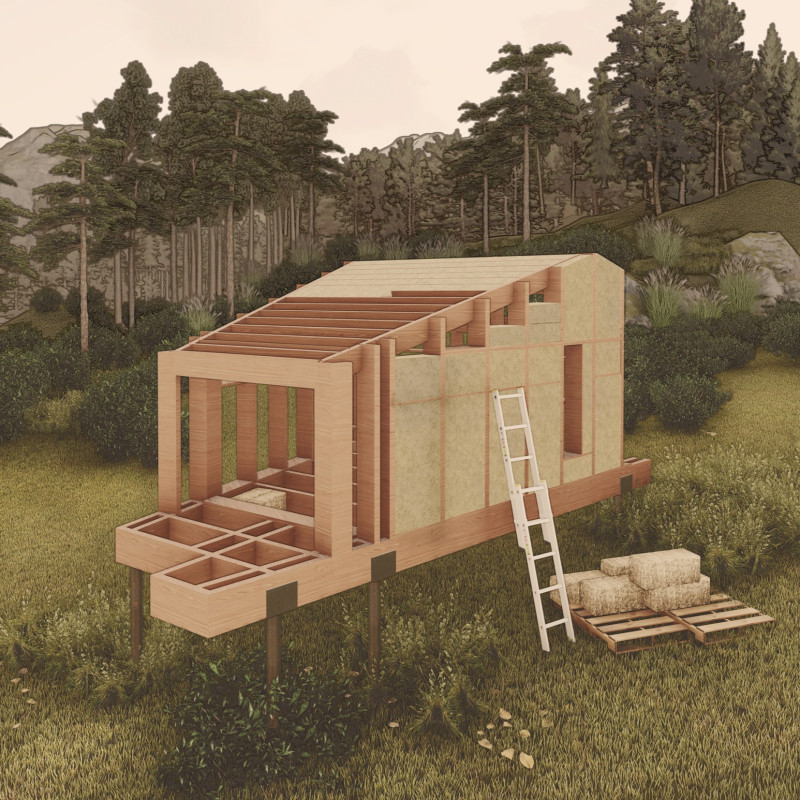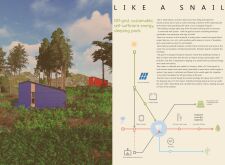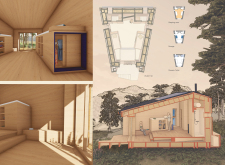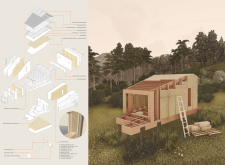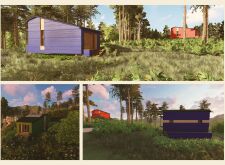5 key facts about this project
"Like-a-Snail" is a compact sleeping pod designed for off-grid living. It is positioned in a peaceful environment and functions as a temporary retreat that promotes a self-sufficient lifestyle. The design focuses on reducing ecological footprints and increasing resource efficiency, aiming to set a new standard for sustainable living.
Structural Components
The sleeping pod features a straw bale wall system, which serves as both insulation and support. Straw is an agricultural byproduct that is easy to source and costs less, aligning with the project's sustainability goals. This approach not only enhances thermal performance but also minimizes energy consumption.
Material Integration
Wooden boards are also used throughout the building envelope. These boards add strength while providing further insulation. Together with the straw bales, they create an energy-efficient shell that captures warmth and controls moisture, ensuring a comfortable indoor environment.
Resource Management
The design includes systems for energy and water management. Photovoltaic solar panels on the roof generate renewable energy. A rainwater harvesting system is integrated to collect and use water for domestic needs. These features illustrate a commitment to self-sufficiency, reducing dependency on outside resources.
Spatial Efficiency
The interior layout focuses on making the most of limited space while ensuring comfort. Raised beds with built-in storage maximize usability. Large windows invite natural light and enhance views of the surrounding landscape, creating a pleasant living space within the pod.
Additional systems such as a dry toilet and greywater filtration support the overall off-grid capabilities, reflecting a practical approach to sustainable living.


